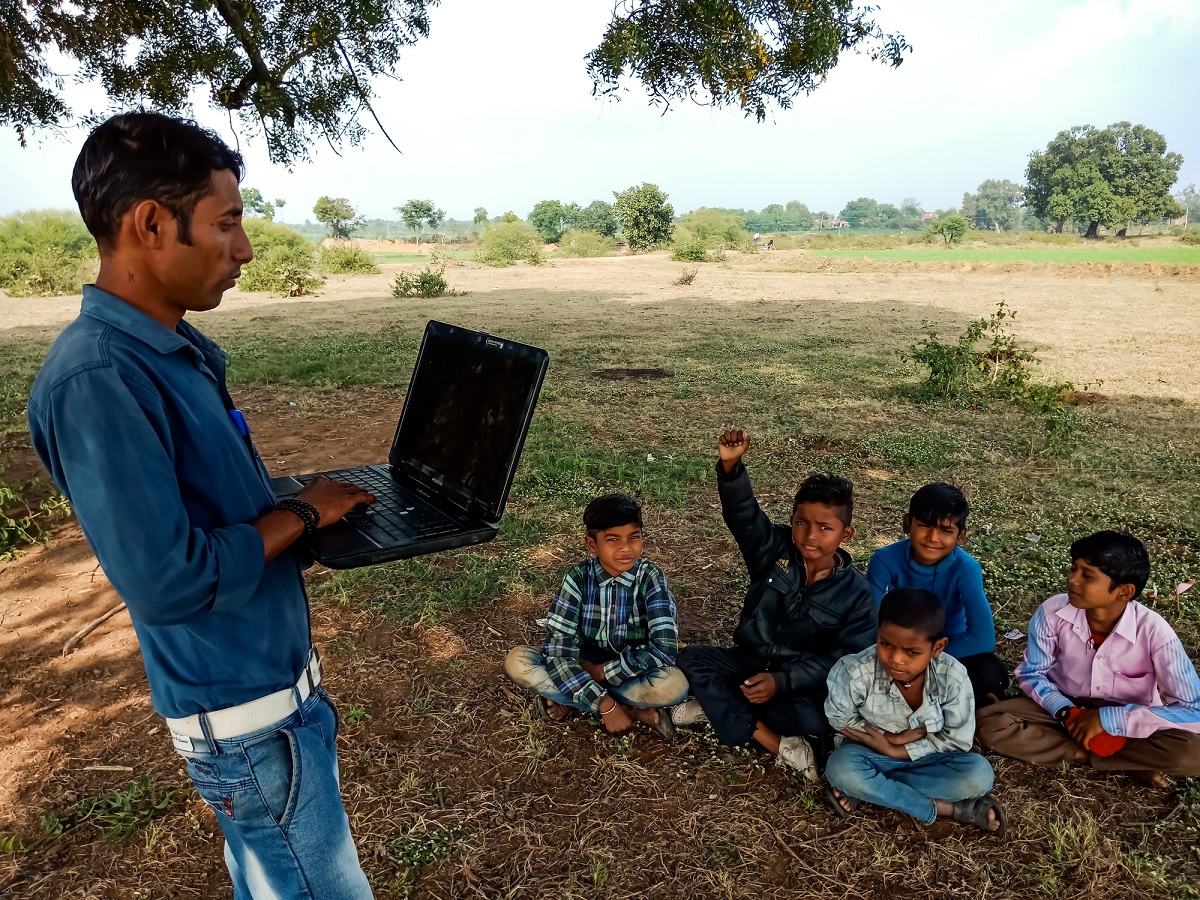The initiative is intended to encourage secondary school students to continue their education and to facilitate social inclusion of young people in the post-pandemic period by promoting the rights of the youth most affected by the challenges of virtual education.

San Jose/Buenos Aires, 25 May 2021 (IICA). Promote inclusion in education with an emphasis on rural areas; empower youth; and combat the consequences of school dropout and worsening inequality as a result of the pandemic. These are the primary objectives of a project underway in Argentina sponsored by the Anne Frank Center, Mundo Sano Foundation, the Government of the province of Chaco, and the Inter-American Institute for Cooperation on Agriculture (IICA).
The initiative is intended to encourage secondary school students to continue their education and to facilitate social inclusion of young people in the post-pandemic period by promoting the rights of the youth most affected by the challenges of virtual education.
The program benefits the students who have had little to no connection to their school during the pandemic, whether due to a lack of technology or connectivity issues, and who are at major risk of being excluded from the system.
“The project’s value is in empowering the youth and encouraging them to help bring back their classmates who have dropped out of school. It’s about the young people going out and looking, one by one, for those who have dropped out, whether due to financial issues, culture, distance or a lack of connectivity”, explained Héctor Shalom, Director of the Anne Frank Center in Argentina.
“We know that factors having to do with food and work are key for the continuation of studies. In this context, the agreement with IICA has enabled us to add value by developing agricultural experiences alongside learning and education in an area of Argentina where the population has been hurt the most from a social perspective”, he added.
Most of the students who will benefit from the project live in the rural areas of Chaco, a province in northern Argentina.
“Many of the nearly 30 participating schools are located in the rural areas of Chaco province. IICA is working with them primarily to raise awareness of the relationship between educational inclusion and rural dynamics”, stated Caio Rocha, IICA Representative in Argentina and Coordinator for the Southern Region.
“We collaborate in designing activities that merge the vision of production with that of education in agro-technical or rural schools. The line between rural and urban is increasingly blurred and must be thought of in terms of a territorial continuum”, added Rocha.
In the project’s first stage, entitled “Social inclusion and coexistence against all forms of violence and discrimination”, training sessions were provided for secondary school supervisors, directors, and teachers in the province of Chaco in northern Argentina.
During these sessions, a diagnosis was made of the current situation of educational establishments and tools were provided to address diverse adolescent problems and accompany youth empowerment. The second phase will include student workshops aimed at staying in school despite the obstacles posed by the pandemic.
The restrictions on activities and circulation have increased the difficulty of maintaining the continuity of learning and have significantly raised the levels of risk and dropout. Consequently, in the post-pandemic period, it will be harder to develop sustainable social inclusion plans and projects.
Beyond the devices provided by the State to alleviate the financial impact of the pandemic, this project represents an active strategy of educational and socio-affective inclusion, so that adolescents on the edge are able to find a support network and believe in a better future.
The concept of “peer education” has a prominent place in the initiative’s youth empowerment strategy. The idea behind peer learning is for the students to provide each other with emotional support, using a common language and empathy to understand each other’s life experiences.
In peer education, the adolescents themselves are part of the problem, but are also an essential part of the solution.
Having students at risk or those who dropped out reenter the school system is an essential chapter of this project. Students are made aware of the implications of dropping out and are encouraged to design reentry projects and strategies. They are trained on how to design motivational arguments and strategies to create opportunities with other students who were abandoned by the system. In groups of two or three, they then visit the homes of students who dropped out or were abandoned, showing a personal interest in their situation and offering materials and help with learning.
Another part of the program are virtual tours of the Anne Frank Museum. These tours have been adapted to the current circumstances and raise awareness about the issues behind the museum.
The Anne Frank Center in Argentina (CAFA) is the representative in Argentina, Uruguay, and Paraguay of the original Anne Frank House in the Netherlands. It develops educational programs aimed at empowering the youth to create the conditions for inclusion and coexistence based on the story of Anne Frank as a figure for positive identification.











